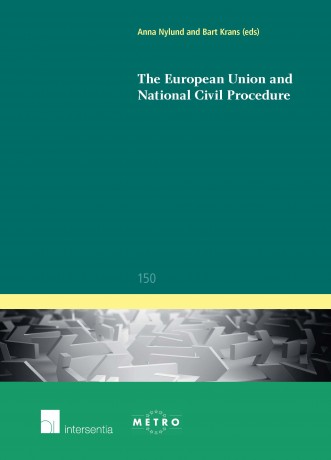
A book series devoted to the common foundations of the European legal systems. The Ius Commune Europaeum series includes comparative legal studies as well as studies on the effect of treaties within national legal systems. All areas of the law are covered. The books are published in various European languages under the auspices of METRO, the Institute for Transnational Legal Research at Maastricht University. This book discusses the impact of EU law on selected national legal systems. The authors analyse how the civil procedure system of their country has reacted to increasing Europeanisation and influence of EU law. They identify significant changes and disseminate the reasons for particular developments and the further implications of EU law on the civil procedure.
Europe is in a period of increasing Europeanisation of civil procedure. Procedural elements of EU law are based on decentralised enforcement, leaving enforcement and procedural issues to the Member States. Consequently, there is vast amount of EU case law that is relevant for national procedural law. The supremacy of EU law and, inter alia, the requirements of effectiveness and equivalence may be relevant for several topics of national civil procedural law, for example ex officio application of EU law, enforcement, insolvency proceedings, evidence, etc. Both EU legislation and doctrinal changes in EU case law touch upon various topics of the procedural law of the Member States.
In a concluding chapter, a more comprehensive comparison between the countries represented in the book is made. Which doctrines, which pieces of legislation or features in legislation pose problems for national civil procedure? Are some legal systems or topics more prone to integrate European rules, and are others more resistant to changes? This book displays the Europeanisation of national civil procedure law and helps to understand this development from the perspective of Member States.